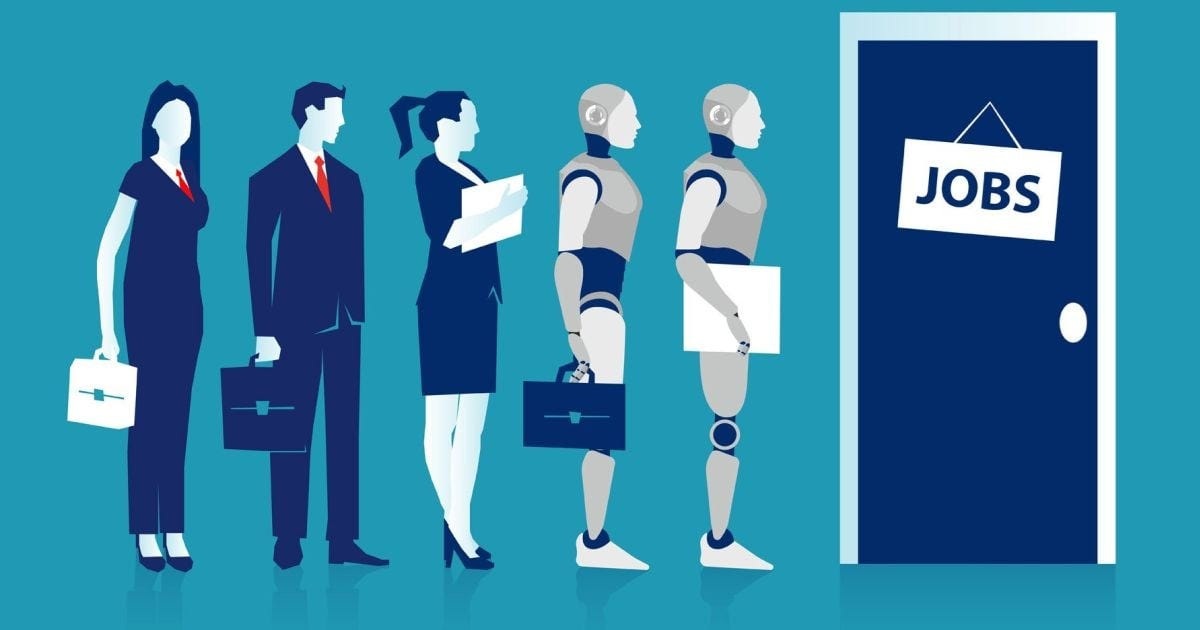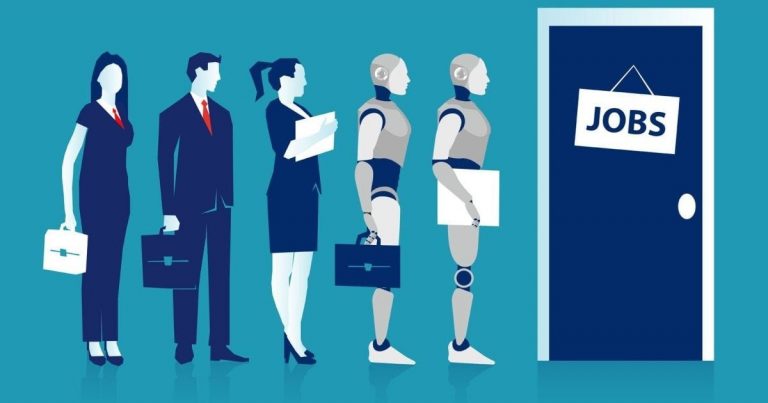AI Takes the Entry Jobs: UK Tech Sector Slashes Graduate Roles by Nearly Half


The United Kingdom’s technology sector is cutting back sharply on graduate recruitment, with new figures showing a 46 percent drop in entry-level roles over the past year — and an additional 53 percent decline projected for the coming year.
According to the Institute of Student Employers (ISE), the dramatic contraction signals a major shift in how the industry hires as artificial intelligence begins to take over the very tasks once assigned to new recruits.
The ISE’s annual data reveal that while overall graduate hiring across industries fell by 8 percent — the first annual decline since the pandemic-driven slump of 2020 — the technology and pharmaceutical sectors have been hit hardest. For tech, the change is both structural and symbolic as the sector that built the tools of automation is now being reshaped by them.
Register for Tekedia Mini-MBA edition 18 (Sep 15 – Dec 6, 2025): registration continues.
Tekedia AI in Business Masterclass opens registrations.
Join Tekedia Capital Syndicate and co-invest in great global startups.
Register for Tekedia AI Lab: From Technical Design to Deployment.
Stephen Isherwood, joint chief executive of ISE, said the displacement of entry-level professionals by AI was no longer theoretical.
“It is a tough market for students and young people in general. There is not much churn in the labor market and young people are suffering,” he told the Financial Times.
Employers are finding that AI systems can perform routine coding, data analysis, and digital maintenance — the same basic tasks that used to define the early stages of many tech careers. As a result, companies are choosing to recruit fewer graduates and instead prioritize experienced workers who can integrate AI into higher-value processes.

Despite the decline, tech remains the top field for graduate opportunities by volume, with 46 percent of organizations across the UK economy still seeking IT, digital, and AI skills. Yet the paradox remains that demand for technology skills is growing, even as the sector provides fewer openings for the youngest entrants.
The survey also highlights an ironic twist — while AI is reshaping the job market, it has not yet become central to graduate hiring itself. ISE found that although over half of employers use automated systems to manage some testing processes, direct AI use remains rare. Only 15 percent of employers said they employ AI tools in gamified assessments, though that number is expected to rise as both companies and candidates become more comfortable using AI technologies in recruitment.
Meanwhile, employers are increasingly wary of applicants using AI to gain an unfair advantage. Seventy-nine percent of surveyed companies said they were redesigning or reviewing their recruitment procedures in response to AI developments. Still, only 15 percent said they had never suspected candidates of using AI tools to cheat on assessments.

The broader trend has been visible across the global technology industry this year. Major software firms such as Salesforce and Workday have announced thousands of job cuts while simultaneously expanding their deployment of generative AI to handle internal operations. Microsoft, too, confirmed plans to eliminate about 10,000 positions in its workforce as it integrates new AI tools across its products and services.
The result, according to analysts, is an emerging “AI paradox” in employment — the very technology that fuels innovation in the sector is also squeezing out the entry routes for the next generation of professionals. What used to be considered “learning work” — debugging code, managing data sets, or assisting in development cycles — is now being done faster and cheaper by automation.
Isherwood’s comments suggest that the shift could have lasting implications. With fewer opportunities for graduates to gain early experience, the pipeline for mid-level talent may dry up within the next five years. The short-term efficiency gains companies enjoy today could lead to long-term skills shortages as fewer workers gain hands-on experience in the fundamentals of software engineering and data systems.
The contraction comes at a time when AI literacy is becoming essential in nearly every profession — yet the pathway into the tech sector, where those skills are most relevant, appears to be narrowing.
Experts warn that while firms may be optimizing for productivity, they risk undermining the development of human expertise that drives innovation. Without sufficient junior roles, fewer workers will have the chance to master the skills that senior technical positions require, leaving the sector more dependent on a shrinking pool of experienced professionals.
For graduates, the new reality is that even the most technologically advanced industries are no longer guaranteed to offer a starting point. The same tools that power progress — from automated code assistants to machine learning models — are now competing directly with them.
If ISE’s projections prove accurate, the UK tech sector could be facing not just a hiring slowdown, but a generational gap. And for thousands of students entering the workforce, the question is no longer how to get into tech — but whether there will still be an entry point at all.





